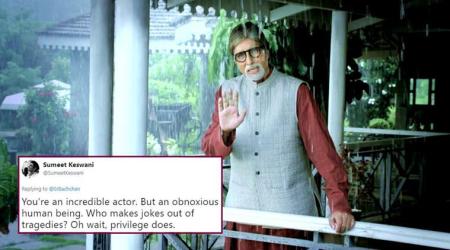 None of the eight stories in the collection come with happily ever-afters. In fact, they are caught up in the abiding anxieties of immigrant life and the chaos of life at home, where reality and aspirations are at perpetual odds.
None of the eight stories in the collection come with happily ever-afters. In fact, they are caught up in the abiding anxieties of immigrant life and the chaos of life at home, where reality and aspirations are at perpetual odds.
Book Name: A Life of Adventure and Delight
Author: Akhil Sharma
Publisher: Penguin
Pages: 190 pages
Price: Rs 599
“A life of adventure and delight” indicates a journey of discovery and promise, a life in which self-actualisation comes in unexpectedly fulfilling ways. And so, the title of Akhil Sharma’s first collection of short stories comes across as an invite — both provocative and ironic — to explore how this journey plays out in the lives of his very ordinary cast of characters. A retired, lonely immigrant in New Jersey tries to forge a relationship with his American neighbour when his wife leaves him unexpectedly after 30 years of marriage to seek spiritual salvation; a gawky, overweight, second generation immigrant confesses that he has always been in love — first, with Wonder Woman and Mary Jane, Spiderman’s girlfriend, and, now, with an athletic American colleague, who lets him get his way with her even though she doesn’t like him very much; a young boy in India grows up loathing a self-serving distant relative, but can never make his disgust known because he does not have the “courage to take revenge”; in the titular story, a PhD student in the Bronx finds greater thrill in courting prostitutes than in getting pinned to a life of familiar domesticity that his upbringing demands of him. There’s also a brief version of Sharma’s semi-autobiographical second novel, Family Life, the story of an Indian family in America devastated by a freak accident that leaves its eldest child comatose.
None of the eight stories in the collection come with happily ever-afters. In fact, they are caught up in the abiding anxieties of immigrant life and the chaos of life at home, where reality and aspirations are at perpetual odds. Sharma brings out the extraordinary anguish of everyday lives with remarkable directness and a quiet empathy, the kind we reserve for those familiar to us, even if we don’t always know them very well. His prose is spare but lambent, gentle yet unsentimental. The men who populate Sharma’s short stories are deeply flawed, complex creatures, often selfish and self-obsessed, their characters shaped by prejudices that limit the growth arc of their personalities. In ‘A Heart is Such a Heavy Thing’, an overbearing patriarch finds himself relegated to the margins of family life after the marriage of his eldest son. In ‘You are Happy’, an alcoholic mother is murdered by her family, leaving her young son to grapple with the unfairness of life: “It seemed awful that his mother had died, that his father seemed to have forgotten her, that this woman was still living her life.” But Sharma does not turn the book into a morality tale or an ethnographic exploration, even though some of the lighter moments in the book arise from the latter. Instead, he anchors his characters in the lives they have designed for themselves and the circumstances they are caught in, viewing their foibles with a wry disengagement.
My favourite story comes midway through the collection, the only one in which Sharma writes from a female perspective. ‘If You Sing Like That For Me’ is the story of Anita’s brief, desperate attempt to love the husband her parents had arranged for her. Unlike her male counterparts, Anita, and, to some degree, the other shadowy female protagonists who hover in the periphery of this collection, have greater success at distilling their emotions and putting their lives in perspective. “I was neither pretty nor talented, and my family was not rich. But I could not imagine spending my life with someone so anonymous… If asked, I would have been unable to tell what kind of man I wanted to marry, whether he should be handsome and funny. I was not even certain I wanted to marry, though at times I thought marriage would make me less lonely. What I wanted was to be with someone who could make me different, someone other than the person I was,” says Anita. Her husband, we know from the onset, is not going to be that person. Towards the end of the story, after a night of desperate lovemaking, the unfailingly polite Rajinder confides in her that the secret of his success lay in pragmatic compromise: “I had at least wanted an MA, and someone who worked, but Mummy didn’t approve of a daughter-in-law who worked. I was willing to change my requirements.”
To find adventure and delight in the stolid and the squalid is a challenge not everyone is up for. In this achingly beautiful collection of stories, Sharma explores, with great poignancy, all the things that hold us together or bring us down on our knees in our search for fulfillment.

